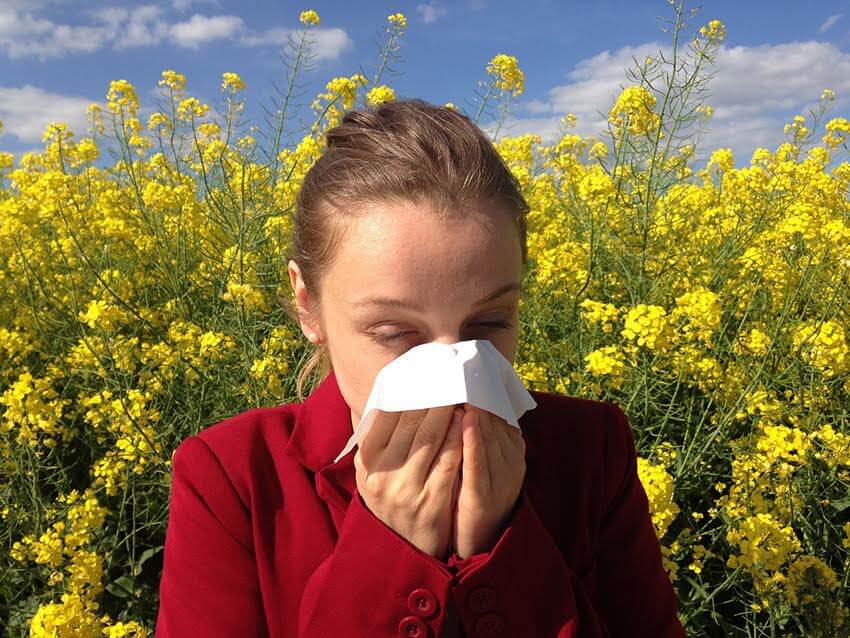 Spring is finally here! Lush greenery returns, flowers begin to bloom and everyone is clamoring to get back outside. However, with the changing season comes a rush of unwanted allergies.
Spring is finally here! Lush greenery returns, flowers begin to bloom and everyone is clamoring to get back outside. However, with the changing season comes a rush of unwanted allergies.
Allergies and allergic reactions, both airborne and food-related, are often discussed in conjunction with rosacea. Allergies may cause a reaction in the body that includes flushing, which frequently triggers rosacea symptoms. In a 1998 NRS survey of 837 rosacea patients, 32 percent said they experienced a flare-up due to allergic reactions.
A 2015 study showed that rosacea patients may be more likely to have airborne and food allergies. The rosacea patients in the study were found to have airborne allergies 4.6 times more often than the control group without rosacea, and food allergies 10 times more often than the control group.
Whether you suffer from airborne allergies, food allergies, or allergies to skincare ingredients, it’s important to try to determine what you are allergic to. As with more common rosacea tripwires, identifying and avoiding allergens -- the substances you are reacting to -- may help control your rosacea during allergy season and year round.
References:
Rainer BM, Fischer AH, Luz Felipe da Silva D, Kang S, Chien AL. Rosacea is associated with chronic systemic diseases in a skin severity-dependent manner: results of a case-control study. J Am Acad Dermatol 2015;73(4):604-8.